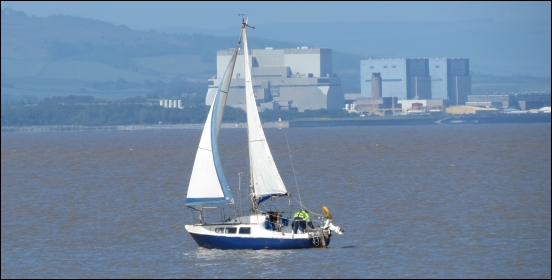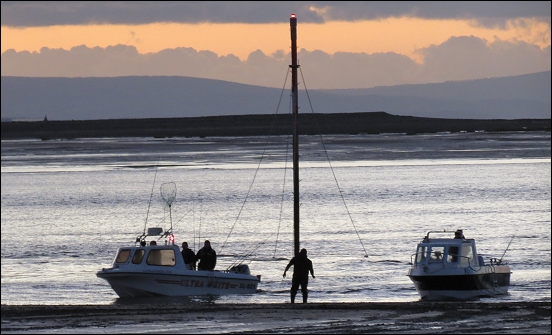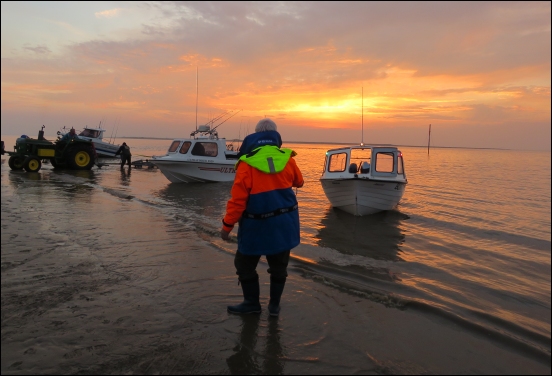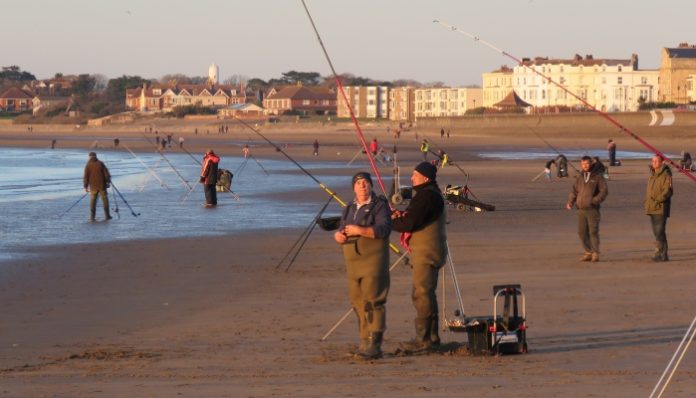Proposals to scrap plans for an acoustic fish deterrent system in the sea next to Hinkley Point C will have a ‘devastating’ impact on fish stocks in the sea around Burnham-On-Sea and the Bristol Channel, it has been predicted this week.
Sea anglers in Burnham claim EDF’s plans not to install a fish deterrent system around the cooling water intakes in the channel will lead to “significant” numbers of fish being killed.
John May, President of Burnham Boat Owners Club, told Burnham-On-Sea.com: “EDF has made it public that they intend to apply to the government regulators to rescind plans to install acoustic fish deterrents at the water intakes on the grounds of health and safety for operatives carrying out maintenance to the devices.”

“EDF astonishingly claim that although Hinkley C will take in 2,500,000,000 gallons of water per day – that’s four times the amount currently used by Hinkley Point B – the fish kill will be less than it is now when only using the remaining two ‘fish friendly’ measures of mesh screens and fish return systems that were to run as a back-up to the acoustic fish deterrents.”
John adds: “Hinkley Point B’s cooling system has been recorded to kill 73 different species of fish at a quantity of 990,000 fish over 3cm per year. Hinkley B kills approximately 750,000kg of fish per year according to the Environment Agency, which is around two tonnes of fish per day on average.”

“The cooling water required for Hinkley Point C will increase by around four times, therefore it is logical to assume the fish kill will also increase significantly. When Hinkley Point C starts up, it will require up to 2.5 billion gallons of water per day.”
“Water and fish will be sucked into two pipes 7 metres wide – about the size of a double decker bus – and while larger fish will get caught on mesh screens, the smaller fish will travel through 3km of tunnels before returning to the estuary and survival rates are extremely low. There are also concerns about the impact of dead fish returning into the estuary.”
“Fish numbers have been going downhill in Burnham and this part of the Bristol Channel at a rapid rate for years, and this could be a final death knell as young fish will be killed in such huge numbers.”

But EDF spokesman Gordon Bell told Burnham-On-Sea.com this week: “Hinkley Point C intends to consult publicly over its proposal not to install an acoustic fish deterrent in the Bristol Channel.”
“The change is being proposed after studies showed that the power station would have a negligible impact on local fish stocks with other fish protection measures in place.”
He added: “These are a fish return system and intakes specially designed to slow the water coming into the cooling pipes. Hinkley Pont C will be the first power station in the Bristol Channel to have fish protection measures.”
“Engineering studies have shown that installing and maintaining underwater speakers in the fast-running tides of the Bristol Channel would pose unacceptable risks to divers and offshore workers.”
“The Hinkley Point C project cannot justify these risks, given there is almost no benefit provided by the proposed system.”







